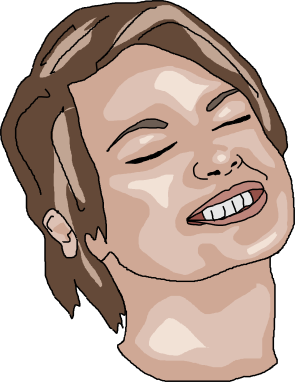7.1 How we Learn English
backVocab
Words, words, words. I am quite often asked, how many words do people need for a basic or good command of English? Depends.
 |
It’s true that you can’t learn a language without learning the words that make it up, but having a huge vocabulary shouldn’t be your main goal—the difference between 1,000 words and 5,000 is a small one if they’re words you don't really use, or if you don’t know how to use them.
Highly educated native speakers have a vocab of over 20 thousands words. Beginners are able to communicate basic things with about 500 words. With 3 thousands words you can navigate well in everyday situations. You will be fluent by knowing about ten thousands words.
- If you are annoyed because you knew that word but forgot, then think about that learning even one single word is a complex process:
- You see/hear the word and try to remember the sound, rhythm, letters, intonation, stress…
- Then you tie meaning to the word, so that you are able to translate from English to your language. This portion of words will make up your passive vocab.
- Third stage: you can translate the word from your mother tongue
- After this all, you will be able to find the word and use it when you need, without translating it - these words will go into your active vocab.
Phew, it is a lot of work 🙄 .
Languages are extremely flexible. You can tell one thing in many ways and your words will deliver the same message (more or less). Focus on expressing yourself instead of building a large vocab.
- What works to improve your vocab: using the language. When you don’t understand a word, you are curious, look it up and will remember
- What doesn’t work: mugging up words then not using them. You will forget them soon, invested time is lost
- When you want to find out the meaning of an English word: use monolingual dictionary instead of a bilingual one. Not all the words have exactly the same meaning in your mothertoungue as in English, so better to "feel" the meaning than translating. The Cambridge dictionary is popular, though there are many more good ones.
- When you don't know how to express yourself, looking for a good English word: find synonyms in dictionary. My favourite page is thesaurus.com, but you can find plenty on the net.
- When you pick up a new word, try to use it as much as possible. If you can’t use it, you might not need it.
- When you learn a word, it always brings its family. For example music: musical, musician, musicology, musicality, etc.
- Flashcards work well to many people. I would recommend using expressions or short sentences for cards, as one single word can have many different meanings. Learning in context is more effective. In our modules we use flashcards in every module. They either have image to describe the word, or a definition of the word (in English). When you make a flascard for yourself, you can use your mother tongue in case it is a sentence or expression, otherwise find synonyms. There are good flashcard apps out, for example Cram or AnKiDroid.
